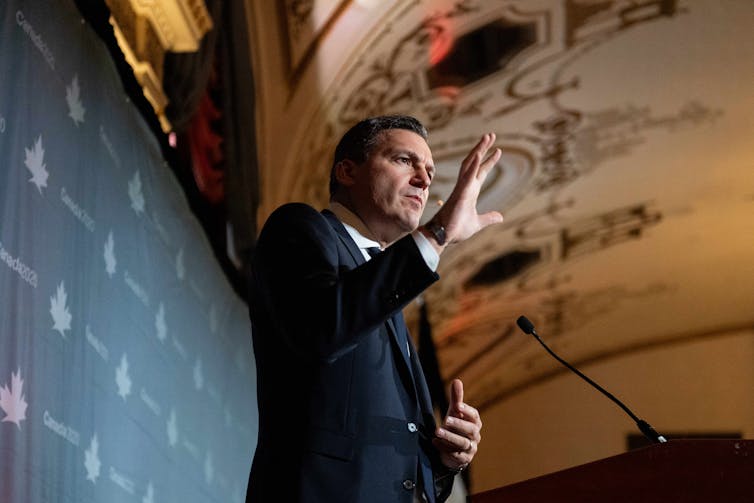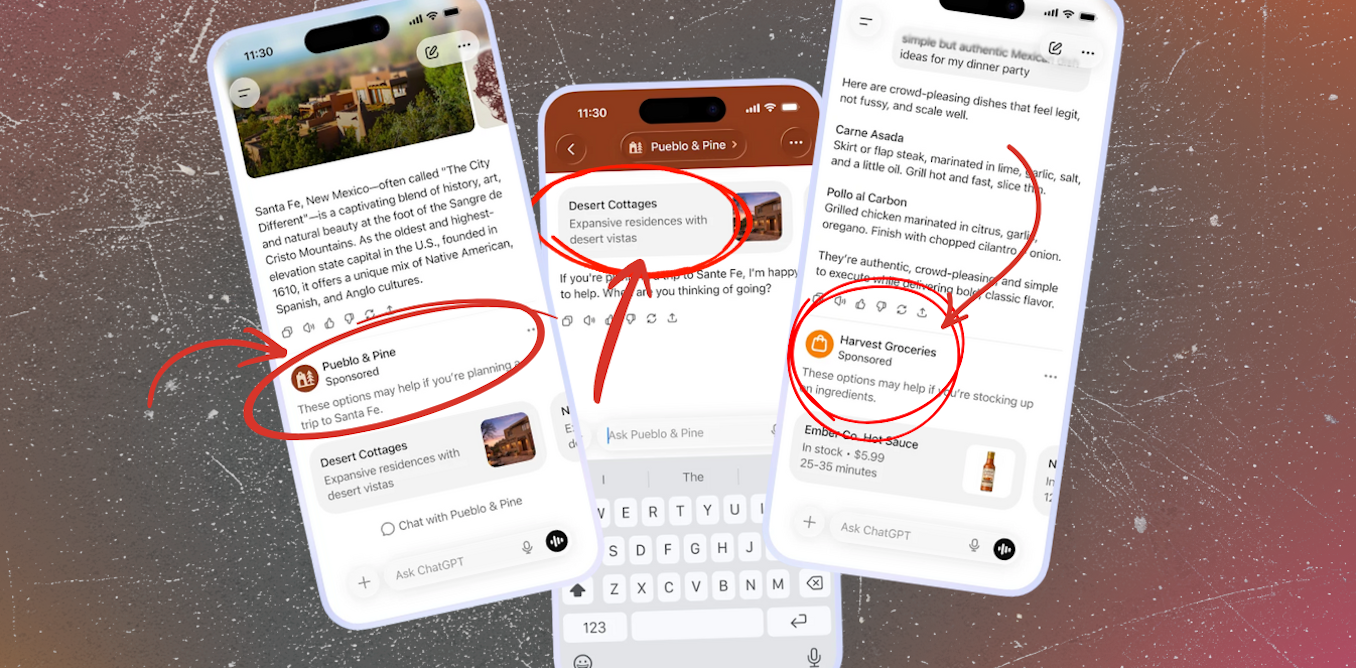As generative artificial intelligence (AI) tools like ChatGPT, Google Gemini and others reshape the digital landscape, much of the conversation in Canada has focused on commercial innovation.
But what if AI were developed as a public utility rather than as a commercial service? Canada’s long history with public service media — namely the CBC and Radio-Canada — offers a useful model for thinking about how AI could serve the public amid growing calls for a public interest approach to AI policy.
Commercial AI has largely been built on the assumption that user-generated content posted online is available to train commercial AI. Focusing so much on the technical success of generative AI ignores that its innovations depend on access to global cultural knowledge — the result of treating the internet as a “knowledge commons.”
AI would have been impossible without public data, and much of that data was taken without contributing back to the public system. Canada, in fact, has a historical link to AI innovation.
Early work in automated translation involved a tape reel that was anonymously sent to IBM in the 1980s containing Canadian parliamentary transcripts. The multilingual material helped train early translation algorithms. What if Canada intentionally trained the future of AI in the same way?
CanGPT: a Canadian public-service AI
A growing number of countries are experimenting with national or publicly governed AI models. Switzerland, Sweden and the Netherlands are all building AI systems with the goal of creating public AI services. The Canadian federal service has some of its own experiments with its own alternative to ChatGPT, CanChat, but it’s only an internal tool.
In Montréal, many arts-based organizations have begun discussing creating their own commons-based AI infrastructure and tools, but they lack infrastructure and resources to advance their mission. A national initiative could help.
There is precedent for this approach. When radio and television first emerged, many countries created public broadcasters — like the BBC (British Broadcasting Company) in the United Kingdom and the CBC in Canada — to ensure new communication technologies served democratic needs.
THE CANADIAN PRESS/Tijana Martin
A similar approach could work for AI. Instead of letting companies build the future of AI, Canadian Parliament could sponsor the creation of its own AI model and expand the mandate of an organization like the CBC to deliver better access to AI. Such a public model could draw on materials in the public domain, government datasets and publicly licensed cultural resources.
CBC/Radio-Canada also has an enormous, multilingual archive of audio, video and text going back decades. That corpus could become a foundational dataset for a Canadian public-service AI, if treated as a public good.
A national model could become an open-source system available either as an online service or as a locally run application. Beyond providing public access, CanGPT could anchor a broader national AI strategy rooted in public values rather than commercial incentives.
Setting democratic boundaries for AI
Developing CanGPT would force a needed debate about what AI should and should not be able to do. Generative AI is already implicated in deepfake pornography and other forms of technology-assisted violence.
Today, the guardrails governing these harms are set privately by tech companies. Some platforms impose minimal moderation; others, like OpenAI, ban politicians and lobbyists from using ChatGPT for official campaign business. These decisions have profound political implications that shape content moderation and social media governance.
Content moderation and acceptable-use policies could be solved through normative principals embedded in CanGPT. A publicly governed AI model could allow Canadians to debate and define these boundaries through democratic institutions rather than through technology firms.
Why a public AI model matters
Public AI is a different tack than government’s infrastructure-heavy approach to AI. The federal government — despite growing concerns that we are in an AI bubble — has invested billions in a big, costly AI Sovereign Compute Strategy.
The policy might be ineffective, end up going largely to American firms and dismantle Canada’s capacity to build public-interest AI.

THE CANADIAN PRESS/Spencer Colby
Canada’s AI agenda has a big environmental impact. A public-good framework could encourage the opposite: frugal, energy-efficient models that run on smaller, local machines and prioritize targeted tasks rather than massive, multi-billion parameter models like ChatGPT. A smaller public model could contribute to this by having a lower environmental footprint.
This approach could stand in direct contrast to the federal government’s efforts to build large-scale AI, as reflected in the massive data centre investments outlined in recent federal budgets. Canada has made major investments in big AI projects. If the bubble bursts, however, smaller-scale AI initiatives may offer a less risky future.
Imagining a public future for AI
Building CanGPT would not be simple. Questions remain about how to fund it, how to update it and how to maintain competitive performance compared with commercial AI.
But it would open a national conversation about AI’s social purpose, regulatory standards and the role of public institutions in digital infrastructure. CanGPT is, admittedly, a strange idea, but it might be precisely what is lacking in Canada’s approach to public service media and digital sovereignty.
At minimum, imagining a public AI model opens the possibilities of new ways to deliver on the promises of AI other than another subscription sold to us by Big Tech.

The post “Could a national, public ‘CanGPT’ be Canada’s answer to ChatGPT?” by Fenwick McKelvey, Associate Professor in Information and Communication Technology Policy, Concordia University was published on 11/27/2025 by theconversation.com
















-2.png)








